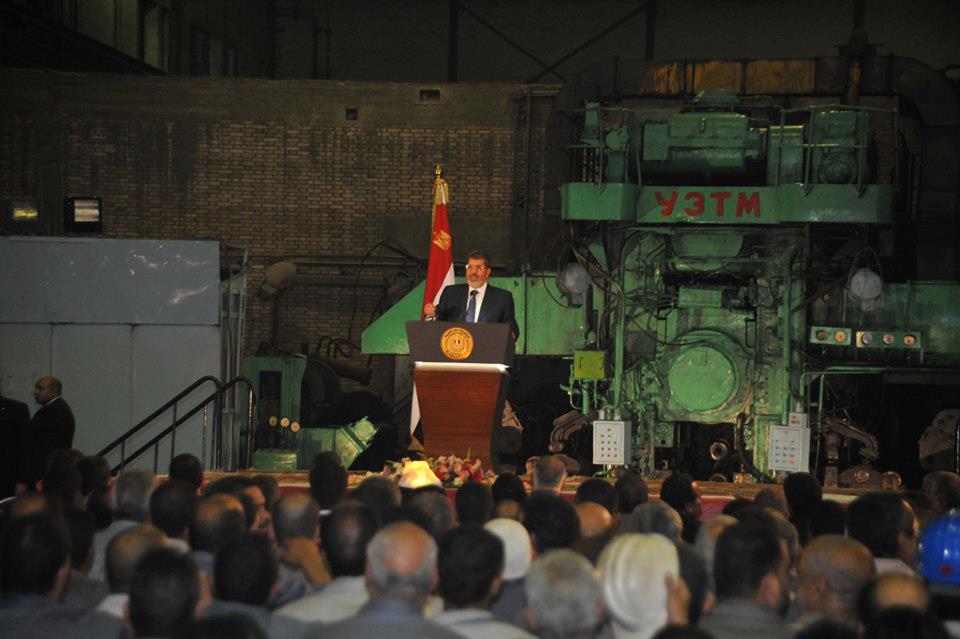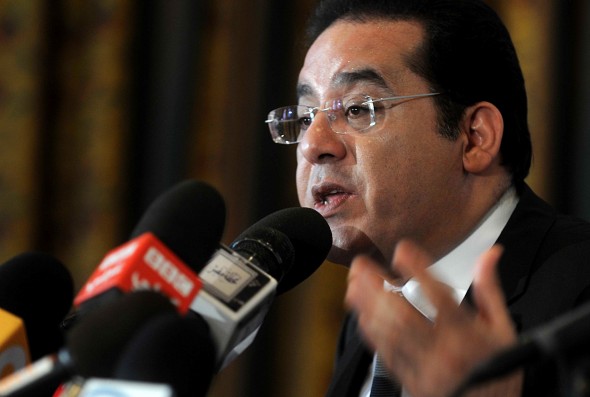CAIRO: The Independent Coalition of Election Monitoring held its fourth press conference at the Journalists’ Syndicate Thursday noting “a continuation of previous violations” committed in the first two rounds.
“We previously issued nine reports and 25 statements [overall],” said Ahmed Fawzy, field work manager for the coalition. “Everything we warned against because the Supreme Electoral Commission (SEC) is weak, lacks impartiality and is unprepared, has happened.”
He added that SEC wasn’t in full control but was nevertheless responsible for the electoral process, and for the repeated technical mistakes.
He noted that “the third round was the least important one,” arguing that “five provinces [the ones on the periphery] were already decided before voting began, while others were already decided between Islamists FJP and Al-Nour.”
The period of electoral silence, when campaigning is banned, was not observed, he said. The fact that is was not enforced in the first two rounds “invited everyone to break it this time around, even those who had respected it before.”
He said that the quality of the campaigning was “worse” and “incited sedition”, noting the Salafi Al-Nour Party’s coalition which used slogans such as “don’t vote for the crusader coalition” or “don’t vote for the infidel liberals”.
Fawzy blamed what he believes is the political failure of the electoral process on the Supreme Council of the Armed Forces (SCAF). He said that although the election has been the best and most honest in modern Egyptian history, it is still a far cry from the ideals of the revolution or international standards.
“All the violations however do not null the process, in spite of influencing the vote in some stations,” he said.
Azza Kamel, director of the initiative for Appropriate Communication Techniques for Development (ACT), said that “this is a ‘democratic celebration’ filled with beards.”
She noted that out of an overall total of 984 female candidates, only three had reserved seats in the first round and another three in the second, with the third round expected to be the same.
“Parliament will have less than a 1.5 percent female representation,” she said, “almost completely male-dominated.”
Kamel also criticised how former NDP political campaigning was replaced with Salafi religious campaigning, and how sometimes judges or poll station administrators directed illiterate voters, in addition to the alleged payment of bribes of between LE 250-500 in Daqahleya, North Sinai and Qena.
Regarding the role of media, Mona Nader, media researcher with the Cairo Institute for Human Rights Studies (CIHRS), said that some media channels took previous recommendations into consideration and abided by the period of electoral silence (such as ONTV), others completely ignored them (such as CBC) and continued campaign information up to the night of the election.
“The media was successful in rallying people to participate in elections, but didn’t play a proper guidance role to show them who to vote for,” Nader said, commenting that the media “fell into a ‘thrill-trap’.”
“Rather than describing election programs they kept highlighting controversial issues such as bikinis and alcohol,” she said. “And even when hosting ‘liberals’ they asked them what they thought of other candidates’ [Islamists] programs rather than discussing their own.”
Nader said that continuing the attacks against Islamists presented them as the oppressed, garnering popular sympathy for them instead, with the campaign turning against itself.
She also criticized how Al-Hayat channel focused extensive coverage on Al-Wafd party, whose chairman El-Sayed El-Badawy owns the channel.
Nader took issue with Al-Jomhouriya newspaper’s staunch defence of the government, Al-Tahrir daily’s focus on Islamists-Christian clashes and its recommendation on who to vote for and Al-Masry Al-Youm’s over-zealous concentration on conspiratorial relationships between SCAF and the Muslim Brotherhood.
She also slammed the use of “clandestine sources” in reporting by all newspapers.

